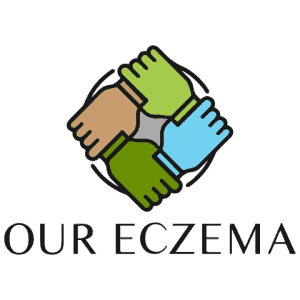Eczema isn’t a single skin disease, but a whole family of conditions, which cause your skin to become irritated, itchy and swollen. So… Is eczema really deadly? In simple terms no, it is neither deadly nor contagious. Rightfully so, if this skin issue is not treated, it could affect your vital organs and or cause severe infection and could lead to death, though it is extremely rare. With that being said, let’s dive a little more into detail about facts, causes, and symptoms of eczema.
Facts about eczema
- A symptom differs as per the age of a person having eczema, but almost always includes itchy and scaly skin patches.
- Foods will trigger symptoms, like dairy and nuts.
- Treatment focuses more on healing the damaged skin or alleviating symptoms.
- Eczema can be triggered by environmental factors such as pollen and smoke.
- Eczema isn’t necessarily a curable condition.
Types of Eczema
Here are the 7 different types of eczema of which one may have. You can find a more in-depth article I wrote about all the types of eczema, right here.
- Dyshidrotic eczema – This type of eczema is vigorous on the hands or feet and is quite common amongst women. Generally, small deep blisters appear on your palms, soles, and on the fingers. These blisters are very itchy and can cause scaly patches on the skin that flake-up.
- Atopic dermatitis – This eczema type is inflammatory and chronic. Although the exact cause of AD is not known, it happens when the immune system goes into overdrive with a reaction to an irritant or allergen inside or outside of the body.
- Contact dermatitis– This type of dermatitis happens when your skin touches any irritating substances and allergens. These will make your skin inflamed, and cause it to itch, burn, and get red. There are different types of contact dermatitis, but the allergic contact dermatitis and the irritant contact dermatitis are quite common.
- Nummular eczema –Nummular is one of the common forms of eczema that happens at any age. This looks different than normal eczema and is tough to treat.
- Seborrheic dermatitis – It is considered as a chronic type of eczema, and appears on your body where there’re several oil-producing glands like nose, scalp and upper back.
- Stasis dermatitis – Stasis dermatitis or gravitational dermatitis happens when there’s a problem with blood flowing to the veins.
- Neurodermatitis – Many people don’t even know this type exists. Very rare, but very severe if you have it. It is not uncommon for people to bleed from the ears when having this eczema type.
Causes of Eczema
Specific eczema causes stay unknown; however, it’s believed to develop because of a combination of genetic and environmental factors. The environmental factors are known to bring symptoms of eczema, like:
- Allergens: Pets, dust mites, mold, pollens, and dandruff will lead to eczema.
- Irritants: It includes detergents, soaps, disinfectants, and shampoos, juices from fruits, vegetables or meats.
- Cold and hot temperatures: Very cold or hot weather, very high humidity or perspiration from exercising can cause eczema.
- Microbes: It includes bacterial viruses, Staphylococcus aureus, and fungi.
- Stress: There is not any correlation that it causes eczema, but it’ll make the symptoms worse.
- Hormones: Women may experience eczema symptoms sometimes when there is a change in their hormone levels, examples are, pregnancy and monthly menstrual cycles.
- Foods: Eggs, dairy products, seeds and nuts, wheat and soy products will cause many eczema sufferers to flare-up.
Eczema Symptoms
Infected eczema is easy to recognize, as the area typically will look more inflamed on your skin. A person who is infected with eczema will experience the following symptoms:
- Extreme itching
- Burning
- Blistering
- White and yellow pus
- Fluid drainage
In advanced cases, a person will experience severe symptoms that include:
- Chills
- Fever
- Fatigue
- Aches
If you are experiencing these eczema signs, I highly suggest you seek immediate medical intervention to treat the issue.
The Complications of Eczema
It’s recommended that infected eczema is checked by your doctor as early as possible, so any complications will be prevented effectively. The infected eczema is the major issue when it comes to constant complications of eczema. Common complications of eczema will include:
- High blisters and itchiness
- Prolonged eczema flare-ups. The infection has to get treated before eczema can heal
- Resistance to the topical steroids with long use
- Scarring
- Growth problems among kids using steroids
Infected eczema can also lead to some dangerous complications. Example, when left untreated, a serious staph infection can cause a blood infection called sepsis.
When to visit a doctor?
If you or your child start developing any kind of rash, it’s good to contact your doctor and rule out any serious infections. Suppose a person has chronic eczema flare-ups, they should see a doctor immediately, before they develop any kind of fever or experience chills. Reduced energy and developing any signs of infection, like oozing blisters or excessive itchiness could also be a possibility.
I highly recommend you don’t wait to see a doctor. Many will think something is just minor, not looking at the bigger picture.
Treatment
Treatment for infected eczema differs based on the type of the infection present. Suppose the main cause of infection is a virus, then your doctor will prescribe an antiviral drug.
For bacterial infections, the doctor will use either topical or oral antibiotic. The doctor will recommend creams and ointments for the mild cases and give oral antibiotics for advanced cases. Your doctor can prescribe a steroid cream for reducing any redness or swelling.
Fungal infections need antifungal creams and medication. Similarly, steroid cream will help with the fungal-infected rash. There are some antifungal creams, which will help with an infection.
Natural remedies
Some people would like to supplement the medication with some natural methods to treat and prevent the eczema infections from getting out of control. People who are seeking natural treatments for their eczema can choose from some of the following remedies:
- Herbal supplements for the eczema flare-ups
- Essential oils, like tea tree or evening primrose
- Probiotics when taking antibiotics
- Oatmeal baths to soothe and dry your eczema
- Natural soaps or creams having emollients
Prevention
An individual can help to prevent infected eczema just by reducing the eczema flare-ups as well as avoiding scratching. People with eczema must keep their skin clean. Whenever flare-ups happen, they must follow a recommended treatment program to help manage and lessen the flare-up. For the flare-ups happening in folds or moist skin areas, gentle care must be taken for keeping that area clean and dry.
Lasting Thoughts
If daily applications of hydrocortisone cream are insufficient for controlling the rash, a person must talk to their physician. Suppose somebody is very uncomfortable that their work, sleep, and other activities are disrupted, they require effective treatment and must see their health care expert professional. Infected eczema on your skin is an easy condition to just ignore, BUT you mustn’t.
For us with eczema, we must take it seriously. Even though death by eczema is extremely rare as I stated already, don’t take your medical conditions as a joke or something that can just “wait until tomorrow”.
2 thoughts on “Can Eczema Really Cause Death?”
Leave a Reply
Recent Posts
Eczema vs Bed Bug Bites: How to Tell the Difference? (W/ Pictures)
Trying to figure out the difference between eczema vs. bed bug bites? If your skin is covered in itchy red welts or splotches, your first thought might be that you are dealing with eczema. It is,...
Best Sunscreen for Babies With Eczema: Top 13 Picks (Updated 2020)
With summer always on the verge, it’s never too early to start looking for the best sunscreen for babies with eczema. Oh yes, even though winter is on the rise at the time of this article...


Sir for last 5 months I’m suffering from Eczema, previously I had Psoriasis but for last ten years but Psoriasis is not problem for me and it has gone into remission, I’m using homeopathy medicine for it.
Sir my Eczema is same as Dyshidrotic eczema, their is water discharge from my scalp and my hand, day by day it is growing.
Sir what should I do, medicine are not working, giving temporary relief, itching is growing.
Sir do suggest proper treatment.
Please consult with a doctor ASAP!